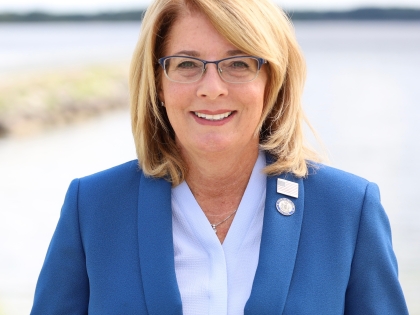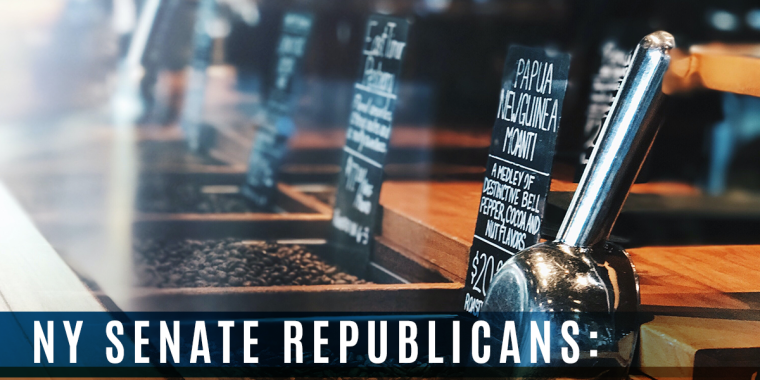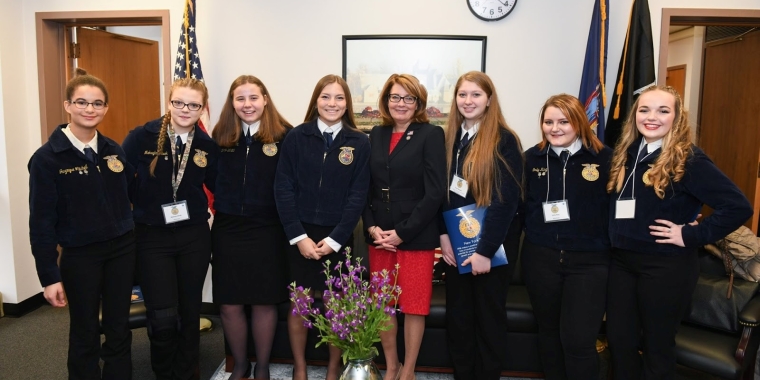
HELMING & ORTT BLAST MAJORITY FOR ABANDONING SMALL BUSINESSES, AGAIN
May 28, 2020

Albany – Today, New York State Senate Republicans blasted Democrats for refusing to assist businesses overwhelmed by the COVID-19 outbreak and economic shutdown. The Legislature convened for the first time since the last week of March – in the midst of the COVID outbreak – to pass a wide array of legislation, with no relief for small businesses struggling to open or reopen following the government’s shutdown of the economy.
Senator Rob Ortt (R,C,I-North Tonawanda) said, “Our small-business owners, farmers, employees, and taxpayers are in the fight of their lives, so it strikes me as unconscionably tone-deaf that Democrats would ignore them. Millions of residents and scores of small businesses were already leaving our state – well before the virus and government lockdown destroyed our economy. We can’t reopen our doors, we can’t get people back to work, and we can’t fund vital government services if we don’t discuss the insurmountable costs New York imposes on its job creators.”
Senator Pam Helming (R,C,I-Geneva) said, “Whether it is agriculture, manufacturing, main street retail stores, healthcare, education, local government, or our important tourism industry, every sector has been hit hard by the COVID Pandemic. Local businesses are at or past their breaking point. And the burdens associated with the pandemic are in addition to the already high cost of doing business in NYS. As legislators, we have a real opportunity to improve the current business climate. This begins by setting aside partisan politics and providing much needed relief to small businesses, schools and our healthcare providers so they can safely re-open. Unfortunately, the recent package of bills put forward by the majority members does little to help job creators and their employees. But it is not too late for the majority to reverse course and bring Republicans and Democrats together to deliver real relief to get our economy moving again and people back to work.”
After talking to small business owners across all sectors and regions of the state, varying in size, several consistent themes emerged. They pointed to important federal assistance, past, and present, but they also identified concerns specific to New York State government. Among them:
Expand Nourish New York. The program connecting the state’s prominent agriculture industry with emergency food shelters has been a rare economic success and a moral triumph. It should be replicated and expanded to connect the state’s farms with downstate markets, which will reinforce New York’s supply chain, improve healthy food options, and stimulate the economy.
Lower the cost of doing business. In New York, labor is the principal cost-driver for businesses. Wage requirements, especially statewide, hurt small businesses and should be postponed. In addition, tax and wage deductions should be considered to stimulate growth and hiring.
Reduce non-health, non-safety regulations. New York’s notorious regulatory environment forces businesses to incur excessive costs and delays, which discourages growth for current and prospective employers. Ill-conceived bans on plastic bags, polystyrene, and other products not only increase costs but also create public health concerns.
Address budget/policy uncertainty. Many businesses and municipalities are struggling to forecast their next steps simply because so much uncertainty surrounds how they will be impacted by state spending, tax, and policy decisions.
Fix unemployment. The struggles of DOL to issue unemployment benefits to recipients has been well-documented. In addition, concerns abound regarding if employees will return to work if federal and state benefits and policies incentivize them to stay home.
Protect Small Business Landlords. Many small business owners and farmers utilize their properties to rent, which provides critical income while also expanding housing options in small communities. They should not be vilified or classified as corporate landlords.
The lawmakers also pointed to specific legislation they believed should be advanced to help small businesses. The legislation, sponsored by both Republican and Democrat legislators alike, included:
S. 5954A (Kaplan) - Tax relief for small businesses
S. 8231 (Carlucci) - Blocking COVID claims from harming experience ratings
S. 8319 (Akshar) - Business and municipal grants
S. 8249 (Helming) - Blocking COVID claims from harming experience ratings
S. 7043 (Borrello) - Tax credit for hiring first employee
S. 681 (Ortt) - Red Tape Reduction Act
S. 4671A (Kaplan) - Eliminating the corporate franchise tax for manufacturers
Ortt and Helming have held discussions with hundreds of small business owners, employees, and advocacy organizations to develop a Reset Plan for New York’s economy and government operations. The four prongs – reopen, reduce, reform, and revitalize – will provide short and long-term solutions to help New York’s businesses reopen and grow as well as recommendations to change the state government’s role in the economy.
In reopening, they called to eliminate the one-size-fits-all approach of the early pandemic response and to instead adopt a regional approach to reopening the economy, which has since been implemented. They advocated for the swift, but safe, reopening of all construction, manufacturing, and agriculture-related industries to help them avoid season-sensitive timelines. In working with state agencies to provide clarification on questions pertaining to essential designations and respective opening phases, they identified and called for the elimination of red tape prevalent earlier in the pandemic. They also called for New York to align the businesses on Empire State Development’s essential list with that of the Federal government’s essential businesses list to ensure continuity and reopen the economy in phases as public health milestones are met.
###
Share this Article or Press Release
Newsroom
Go to NewsroomSENATOR PAM HELMING: WE MUST PROTECT OUR FIRST RESPONDERS
February 24, 2020

Senator Helming Participates in Wayne County American Legion Service
February 19, 2020
